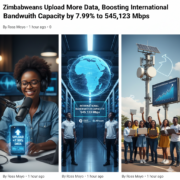Image Box Title
Change this description

Network Operator, Liquid Intelligent Technologies has landed capacity on Google’s Undersea Cable.
David Eurin, CEO Liquid Dataport at Cassava Technologies
Liquid Intelligent Technologies has announced that it acquired a fibre pair on Google’s Equiano subsea cable.
The fibre pair will allow it to transport traffic up to 12 Tbps and bring a much-needed increase in international connectivity in Western and Southern Africa, Liquid stated.
“With older sub-sea cables almost at the end of their lifespan, Liquid through the Equiano cable system will address the growing need for Internet capacity supporting cloud services in both coastal and landlocked countries on the continent,” the company stated.
Equiano will link Africa to Europe via the West Coast when it is ready for service later in 2022.
It will provide terabits-per-second of capacity to meet the growing and varied business needs of organisations across Europe, Western, and Southern Africa, Liquid said.
“In the last few years, we have witnessed a steady increase in adoption of digital technologies,” said Liquid Dataport CEO David Eurin.
“This wouldn’t have been possible without our investments in high-speed connectivity in coastal as well as landlocked African countries.”
Eurin said Africa needs companies like Liquid which lands terabits-per-second of capacity with subsea cables and also distribute that capacity inland.
That enables landlocked countries to see the same benefits as those where the cable lands.
The Equiano subsea cable has landings planned in Sesimbra (Portugal), Lomé (Togo), Lagos (Nigeria), Swakopmund (Namibia), Rupert’s Bay (Saint Helena) and Melkbosstrand (South Africa), with more landing stations planned in the future.
Liquid plans to interconnect the Equiano landing stations to its East-West network across Africa, creating a new global IP route between Asia, Africa, and the USA.
It said the deployment would bring the benefit of access to large capacities and low costs to cross-connect from subsea to terrestrial backhaul, which should lead to lower prices for both consumers and businesses.











Comments